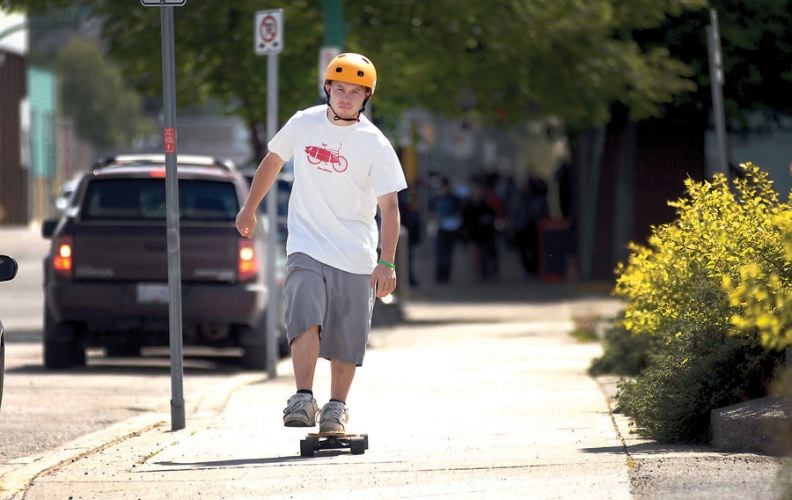After two brain injuries over the span of a few months, Brayden Erickson knows as well as anyone the importance of wearing a helmet.
The 25-year-old Prince George resident is championing the Northern Brain Injury Association's Happy Helmet Day on Monday and wants to encourage those involved in risky recreational activities to do them safely.
"If you do any dangerous sports, why not protect yourself?" he said. "Your brain does everything that you do."
The association is hoping to raise awareness Monday about both brain injuries and safety with its first-ever event celebrating helmets. Doug Jones, the group's president, is encouraging everyone in Prince George to sport some sort of helmet Monday, regardless of what they're doing.
"If you have snowmobile helmet or a bike helmet or a hard hat, just wear it," he said. "If people ask you why, you can tell them."
Jones said since 95 per cent of brain injuries are preventable, there should be no excuse not to wear a helmet.
"Wearing your helmet to work invokes all the different apprehensions someone would have wearing their helmet biking or doing some construction around the house," Jones said. "Yes, it's going to mess up your hair; yes, you're going to look goofy; and yes, people are going to make fun of you - but do it anyway."
Erickson's saga began in January 2012 when he spent more than five weeks in an induced coma after crashing into a tree while snowboarding.
"Usually I dodge them, but this one must have been really big," he said, adding he has no memory of the actual incident.
Part of his skull was removed to remove pressure on his brain, but Erickson was eventually able to recover from the crash and said he felt like he made a full recovery.
About seven months after his first injury, Erickson was hurt again when he was being towed on his longboard behind a truck - something he now regrets doing.
"After I recovered [from the first incident] I felt the same as before," he said. "Whereas after the second one, which was in the same year, 223 days later, I definitely noticed the effects of brain injury, like short-term memory loss."
Ian Parker, who suffered a brain injury as a result of being a passenger in a 2006 motor vehicle collision, is also a strong advocate for increased helmet use. He would like to see better enforcement of helmet laws and more education for young people.
"It only takes a tiny little bump on the head to get a brain injury," Parker said. "Nobody has a clue how hard it is to recover from a brain injury."
The Northern Brain Injury Association Happy Helmet Day is the first of its kind in Canada and Jones said the group is hoping if it's successful here it will grow to other communities across the country as well.
Erickson said the simple message the group is trying to push is an important one.
"You never know what can happen," he said. "You can hit a tiny rock and you don't know if your neck is going to be strong enough to hold your head up."



